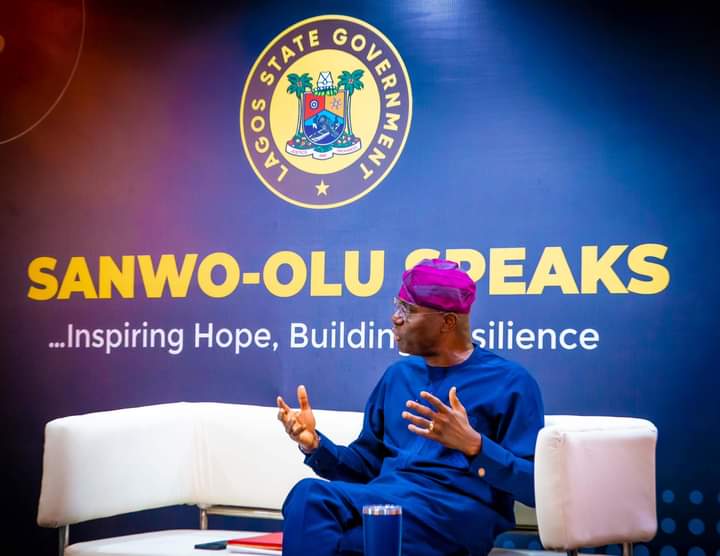Lagos State Governor Babajide Sanwo-Olu has announced that the state’s burgeoning leather industry is projected to generate an estimated N387.5 billion annually from exports, positioning Lagos as a key player in Nigeria’s non-oil revenue diversification drive. Speaking at an event showcasing the state’s industrial and export potential, the governor emphasized that the leather value chain holds significant opportunities for wealth creation, job growth, and foreign exchange earnings.
Sanwo-Olu explained that the state government is implementing a comprehensive strategy to enhance leather production, processing, and exportation. This includes investments in modern tanneries, training programs for artisans, and the establishment of industrial clusters dedicated to leather goods manufacturing. According to him, these initiatives are aimed at meeting global standards and ensuring Lagos leather products remain competitive in the international market.

The governor noted that Lagos already accounts for a large share of Nigeria’s trade and export activities due to its strategic location, ports, and industrial base. By tapping into the global leather market, which is valued at billions of dollars annually, Lagos aims to attract both local and foreign investors to further develop the sector. Sanwo-Olu stressed that the state is focused on building a robust ecosystem that integrates raw material processing, finished goods production, and export facilitation to maximize the industry’s potential.
He added that the government is partnering with private sector stakeholders, international trade agencies, and financial institutions to strengthen the leather industry’s value chain. This collaboration will provide access to funding, modern equipment, and training to support artisans, small businesses, and large-scale manufacturers. The goal is to boost production capacity, ensure quality control, and create a sustainable export model.
Sanwo-Olu highlighted that leather goods from Lagos, including shoes, bags, belts, and upholstery, are already attracting interest from buyers in Europe, Asia, and North America. He emphasized that the government’s drive is not just to increase exports but also to create thousands of direct and indirect jobs for Lagos residents. The administration plans to expand vocational training programs for youths and support women entrepreneurs involved in the industry.
The governor also acknowledged challenges facing the sector, including infrastructure deficits, inadequate access to finance, and the need for compliance with international standards. To address these issues, Lagos State is working on policies to improve logistics, provide easier access to ports, and enhance the overall business environment. He noted that the state is determined to position itself as Africa’s leather export hub.
Economic experts have welcomed the initiative, pointing out that Nigeria’s overdependence on crude oil revenues has left the economy vulnerable to global oil price shocks. Expanding into non-oil exports such as leather is seen as a sustainable way to diversify revenue sources and stabilize the economy. They added that Lagos’ proactive approach could serve as a model for other states to emulate in boosting industrialization and exports.
Industry stakeholders have also commended the government’s support for artisans and SMEs within the leather sector. Many see the initiative as a catalyst for transforming the industry into a globally competitive player while contributing significantly to Nigeria’s overall economic growth. With proper implementation and policy consistency, experts believe that Lagos can surpass the N387.5 billion annual revenue projection in the coming years.
Sanwo-Olu reiterated that his administration’s commitment to the leather industry aligns with its broader economic development agenda under the THEMES+ framework. He assured stakeholders that the government will continue to provide the necessary infrastructure, incentives, and policy support to drive industrial growth and job creation.
If successfully implemented, the Lagos leather export initiative could significantly boost Nigeria’s non-oil sector and improve foreign exchange inflows, especially at a time when the nation seeks economic diversification. The projected N387.5 billion annual revenue stands as a testament to the untapped potential within Nigeria’s manufacturing and export sectors.
By addressing challenges around infrastructure and quality standards while fostering strong public-private collaboration, Lagos has an opportunity to cement its position as West Africa’s leather hub, creating prosperity and employment opportunities for its citizens for decades to come.
Support InfoStride News' Credible Journalism: Only credible journalism can guarantee a fair, accountable and transparent society, including democracy and government. It involves a lot of efforts and money. We need your support. Click here to Donate
